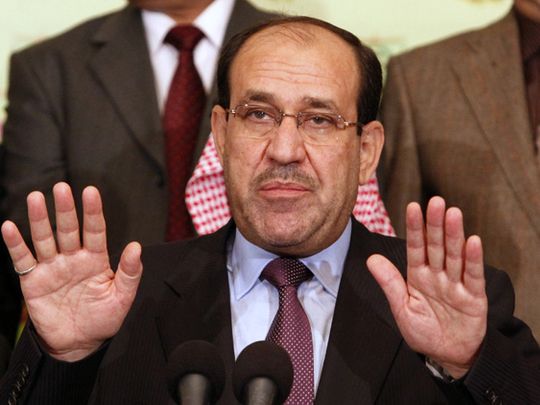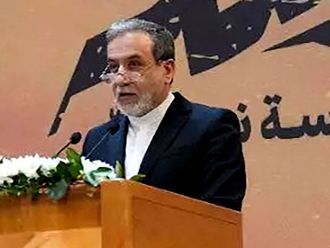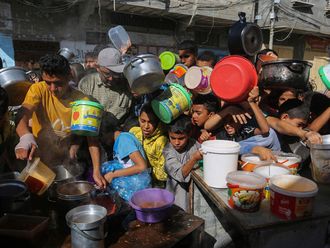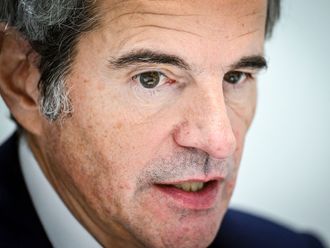
Baghdad: Political infighting and last-minute horse-trading delayed the formal announcement of a new Iraqi government on Monday, lawmakers said, as Iraq sought to end a 9-month vacuum created by an inconclusive election.
Prime Minister Nuri Al Maliki had been expected to introduce his cabinet choices before parliament on Monday, but lawmakers and a spokesman for the speaker said the day's agenda did not include the announcement.
A spokesman for Al Maliki said he would proceed anyway, announcing a partial list.
The final deadline to approve the cabinet is at the end of the week, and the eleventh-hour squabbling and power-plays highlight the ethnic and sectarian divisions that pervade the country, 7-1/2 years after the US-led invasion that toppled Sunni dictator Saddam Hussain.
"Al Maliki delayed the announcement to give all blocs an opportunity to review their nominations and to put the final touches on an agreement and achieve greater consensus," said Abdel Hadi Al Hassan, a politician from Maliki's Dawa Party.
Al Maliki's cabinet is expected to retain Oil Minister Hussain Al Shahristani, the Shi'ite architect of ambitious plans to turn Iraq into a top global oil producer, as well as Foreign Minister Hoshiyar Zebari, a Kurd.
Shahristani is seen as a vital member of the new cabinet and his reappointment is important to assure investors Iraq will honour deals to develop its vast reserves.
Ahmad Al Oraibi, a lawmaker for the Sunni-backed Iraqiya political coalition, said political leaders were expected to sort out lingering disputes over the division of posts later on Monday, but other officials said resolving the problem could take longer.
Delay reflects wrangling
Al Maliki's spokesman Ali Al Dabbagh said the premier would announce "half the new government" later in the day.
Ebrahim Al Sumaidaie, an Iraqi political analyst, said the wrangling was an attempt by political parties to wrest concessions on ministerial appointments from Al Maliki.
"There are blocs that want to squeeze Maliki to make him respond to their demands," he said. "But Maliki can turn the tables on them and can go to parliament with half of the cabinet - taking into consideration that he can insure a majority in the assembly."
A power-sharing deal last month between Shi'ite, Sunni and Kurdish blocs put Maliki on track for a second term as prime minister.
The November 10 agreement returned Kurd Jalal Talabani to the presidency and made Osama Al Nujaifi, a Sunni, parliament's speaker.
Former Prime Minister Eyad Allawi, a secular Shi'ite whose cross-sectarian coalition won the most seats in the March 7 vote, was unable to garner enough support to secure the premiership but has said he will also join the government as head of a new national strategic policy council.
Allawi's decision, which he announced on Sunday after weeks of uncertainty, could soothe worries about renewed sectarian violence.
Al Maliki is not expected to reveal sensitive security posts, including the interior, defence and national security ministers, as nominees have not yet been decided.












